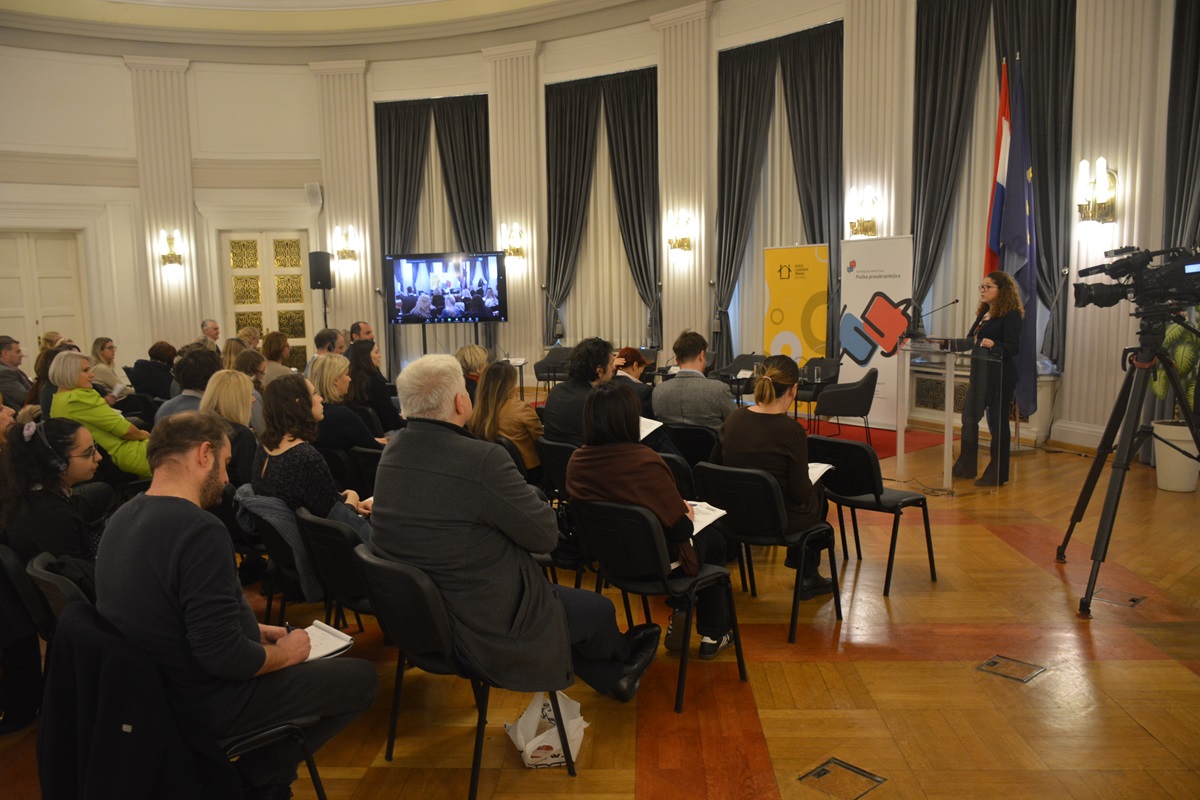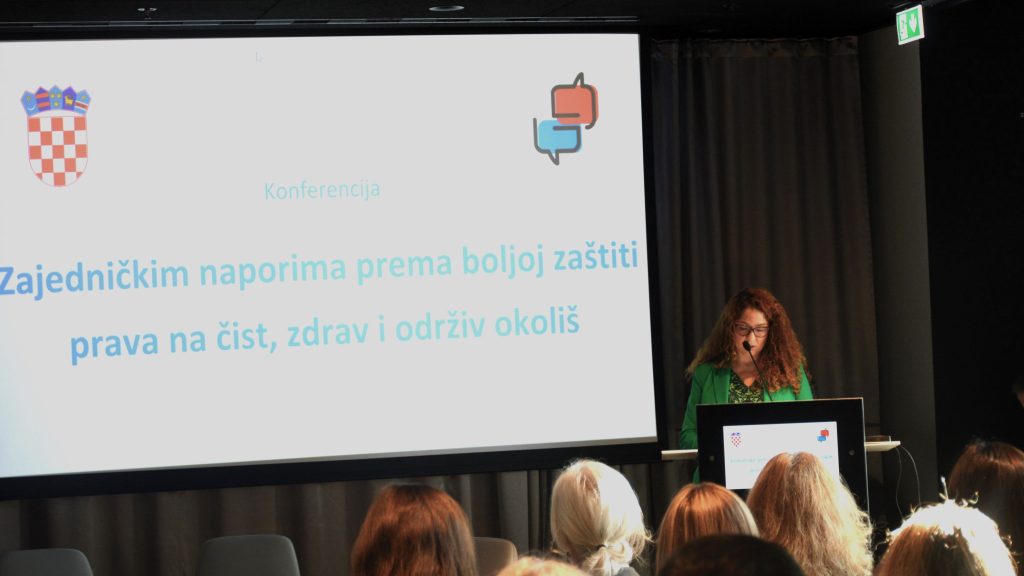The Ombudswoman Tena Šimonović Einwalter, in cooperation with the Human Rights House Zagreb, organized the Human Rights Conference – Implementation of International Recommendations Addressed to the Republic of Croatia on 26 November 2024.
The aim of the conference was to contribute to strengthening human rights protection in Croatia by encouraging the implementation of recent recommendations received by Croatia from UN committees—specifically, those from the Human Rights Committee in September of this year and from the Committee on the Elimination of Racial Discrimination in October 2023.
These committees’ recommendations indicate what states need to do better to protect human rights, based on obligations they have undertaken. In this case, those obligations stem from the International Covenant on Civil and Political Rights and the Convention on the Elimination of All Forms of Racial Discrimination. States are required to submit reports to these committees on the implementation of the Covenant and the Convention, after which the committees issue recommendations.
Opening the conference, the Ombudswoman emphasized that especially in recent times—globally, in Europe, and in Croatia—human rights are increasingly questioned and politicized. They are too often framed as opinions, even though they are, in fact, international law—human rights law. The state has undertaken legal obligations, and human rights must be treated accordingly—as legal obligations.
The world is currently facing several crises, and one of the appropriate responses must be more, not fewer, human rights. Human rights must be discussed and taught, and international mechanisms’ recommendations must be implemented—with human rights defenders and institutions responsible for their promotion and protection insisting on this process.
She described the Office of the Ombudswoman as a bridge connecting different actors—civil society organizations, competent authorities, the Croatian Parliament—and as an institution that provides perspective and conveys the experiences and messages of citizens.
Ivan Novosel, Program Director of the Human Rights House Zagreb, emphasized that the implementation of international procedures is a long-term process, and that this conference is one way to initiate it. It offers an opportunity to reflect on what implementation should look like—in the spirit of dialogue and by recognizing the different roles of those involved in the process—and can help raise the visibility of the recommendations.
Participants also heard a video message from Vladlen Stefanov of the Office of the High Commissioner for Human Rights. He stressed that national human rights institutions, such as the Croatian Ombudswoman, play a key role in implementing international recommendations, particularly by informing the committees of the gap between guaranteed and actual rights of citizens, as well as of the steps needed to close that gap.
Romana Kuzmanić – Oluić, Advisor to the Minister of Foreign and European Affairs, shed light on the complexity of the process from the perspective of a state party to international treaties. She noted that Croatia is doing well in terms of its ratification policy of international instruments but added that before ratification, more should be done to assess the legal framework and conduct analyses by competent authorities.
Two panel discussions followed, focusing on the recommendations of the two committees and their implementation, featuring representatives of state authorities, ombudsperson institutions, and civil society organizations.
On the recommendations of the Committee on the Elimination of Racial Discrimination, the panel included:
- Katarina Coha, Head of the Human Rights Service at the Government Office for Human Rights and Rights of National Minorities
- Tatjana Vlašić, Deputy Ombudswoman
- Tatjana Holjevac, Deputy Ombudsperson for Children
- Lucija Mulalić, Project Coordinator at CMS
- Boris Milošević, from the Serb National Council (SNV)
- Vesna Teršelič, Head of Documenta – Center for Dealing with the Past
On the recommendations of the Human Rights Committee, the panel included:
- Danijela Gaube, Director of the Directorate for Human Rights, National Minorities and Ethics at the Ministry of Justice, Public Administration and Digital Transformation
- Dijana Kesonja, Deputy Ombudswoman
- Kristijan Kevešević, Deputy Ombudsperson for Gender Equality
- Oriana Ivković Novokmet, Executive Director of Gong
- Ivan Novosel, Program Director of the Human Rights House Zagreb
- Melisa Skender, Secretary General of the Croatian Journalists’ Association (HND)
The panels particularly emphasized the need for strong interdepartmental cooperation, raising awareness of conventions and recommendations, and education of targeted groups. Challenges were also highlighted, such as visible discrepancies between the perception of compliance—based on submitted information—and the actual impact on citizens, including due to insufficient institutional capacity.
Further difficulties were noted in the realization of human rights, including: the right to education; freedom of the media; access to justice (including protection of whistleblowers); challenges faced by Roma children and child migrants; gender equality; the fight against hate speech and hate crimes.





